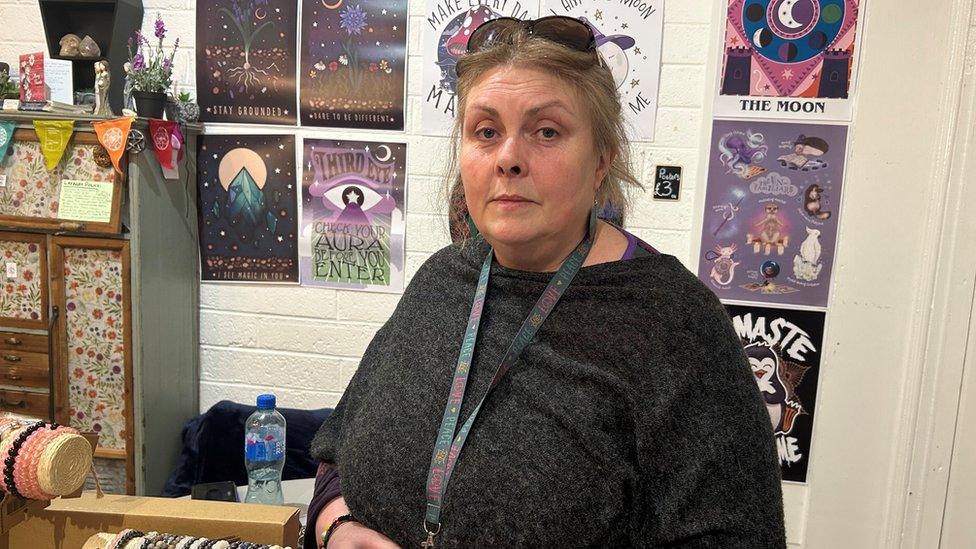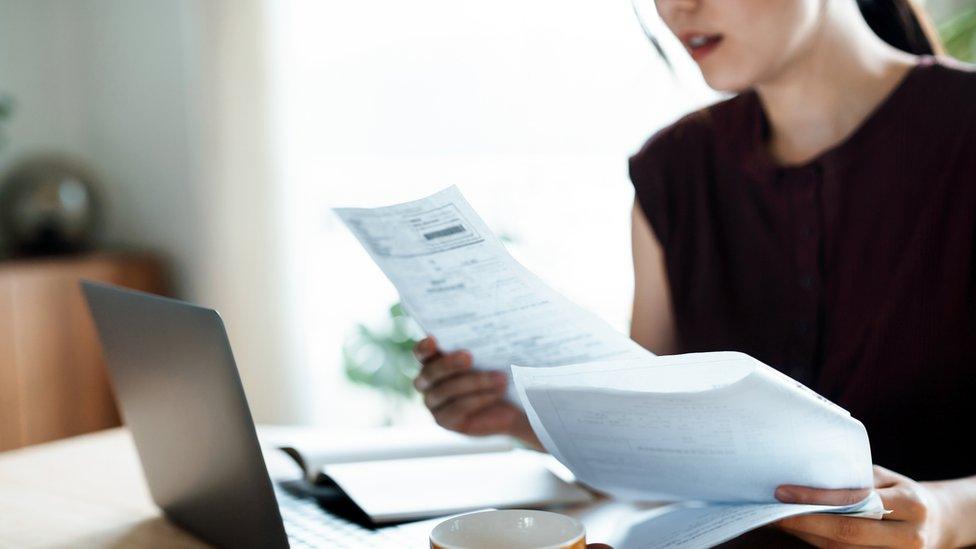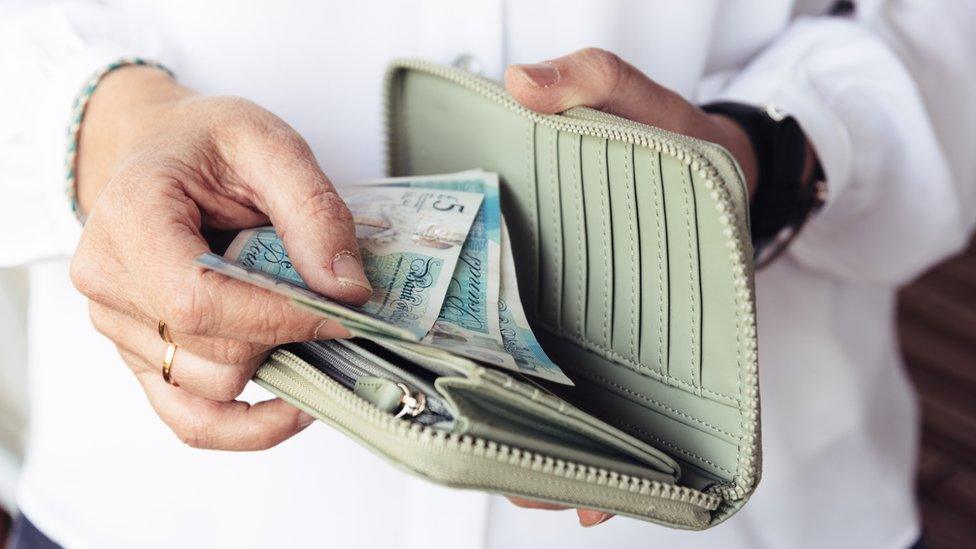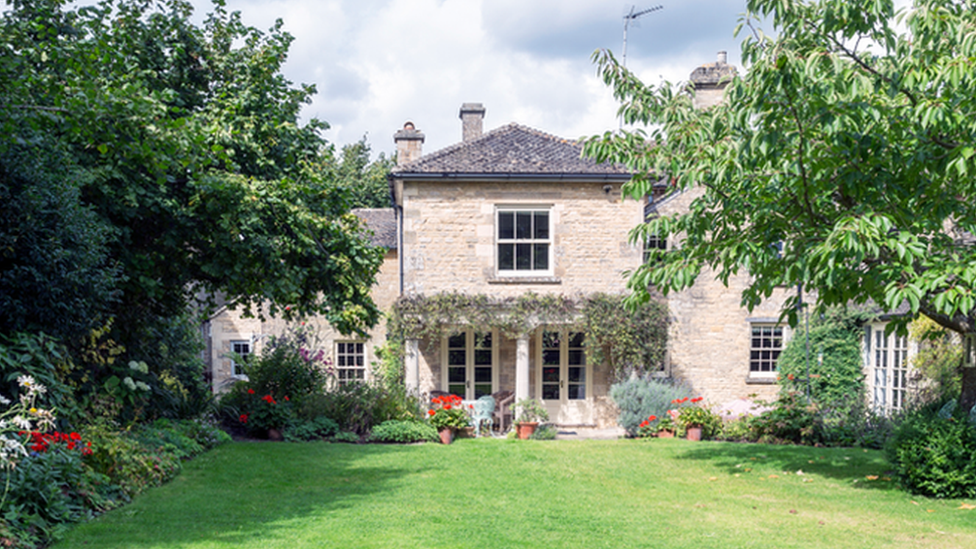NI Rates: Bills set to arrive at homes and businesses
- Published

Helen Lilley says she may have to lose some part-time staff at her gift shop in Derry's craft village
Rate bills are going to start arriving with homes and businesses as bills are issued on Friday.
This year, bills are being sent to about 840,000 homes and about 75,000 businesses in Northern Ireland.
Rates are property taxes paid by households and businesses and are based on property values.
But some business people are finding it higher and harder to pay the higher rates bills.
Helen Lilley owns a holistic and spiritual gift shop in the craft village in Londonderry.
"We're already struggling as it is, as all small businesses are at the moment" she said.
"This year has been the worst year I have ever experienced with retail, so I don't know the impact that that (rates bill) will have.
"And it's not just on my business, but it's also on my home because I'm self-employed.
"So, for me and for many other business people, it's going to be a double-whammy."
She said the business sector needed more help from Stormont but she, personally, felt let down by politicians.
"We may have a government up and running but, actually, on the ground, none of us are feeling any of the benefits."
She said it was a "really challenging time" her costs, including wages, have all gone up.
"For me with several part-timers, I may have to let some of them go to try to find a way of balancing the books somehow.
"January and February were the worst I have seen in business ever, and I'm in business 30-odd years."

Rates bills can be paid online by direct debit in instalments, or in person at any post office
How much will I have to pay?
The amount you pay depends on where you live and the size of your property, but the average household rate bill in Northern Ireland is £1,180.
There are a number of ways to pay including by direct debit spread over 10 monthly instalments, online or in person at any post office.
Household ratepayers can receive 4% discount if they pay their 2024/25 rates in full on or before 10 May 2024.
Businesses may also be able to access a range of rate support schemes.
Your household rates bill is made up of two elements - the first is the district rate which is set by the 11 local councils.
That money pays for local services including waste management, environmental health, leisure and community services.
The other part, the regional rate, is set by Stormont ministers who agreed to increase the regional rate by 4%.
The money it generates is spent on public services like roads, hospital and educations.
- Published7 February 2023

- Published7 November 2023
